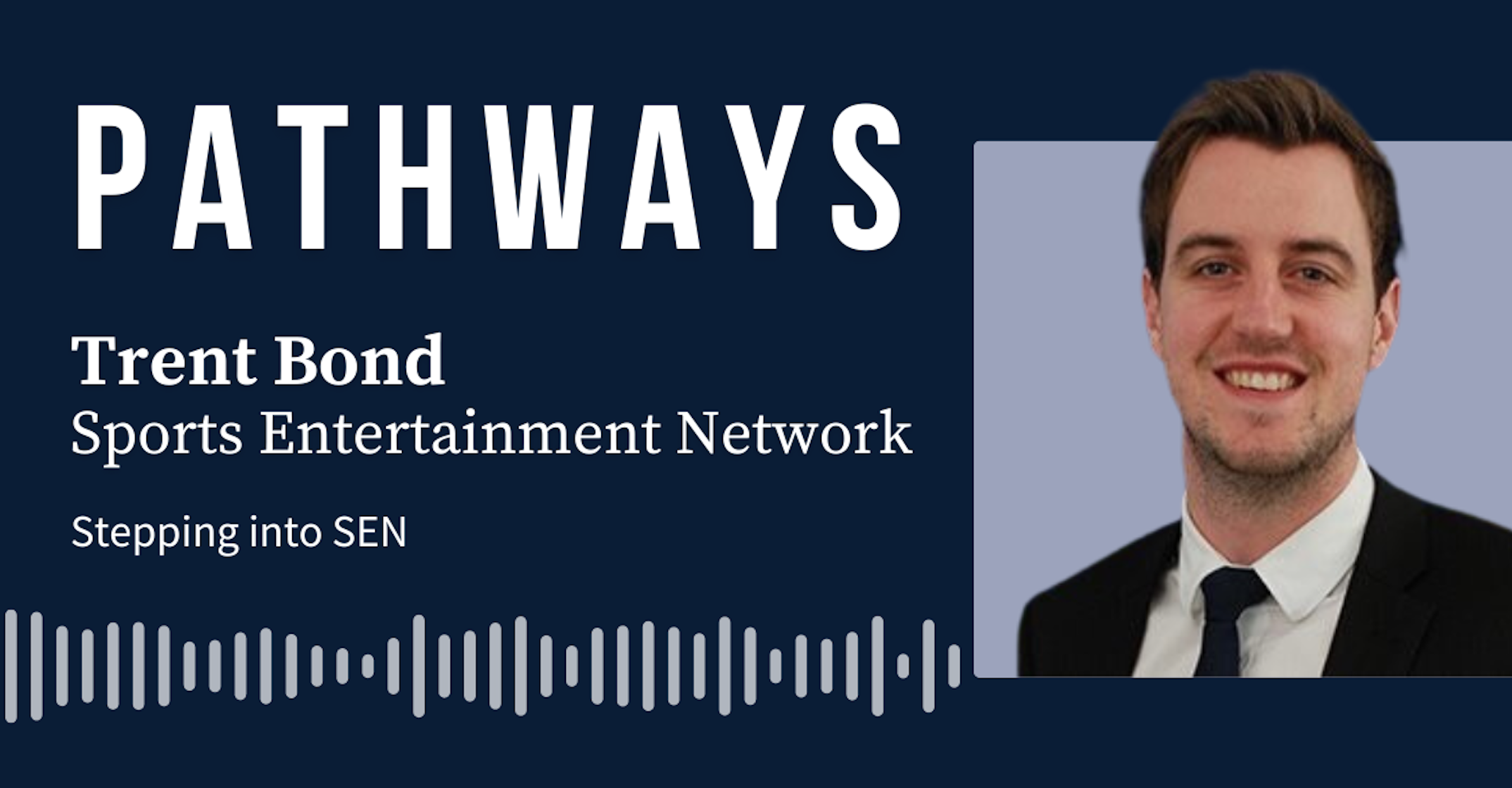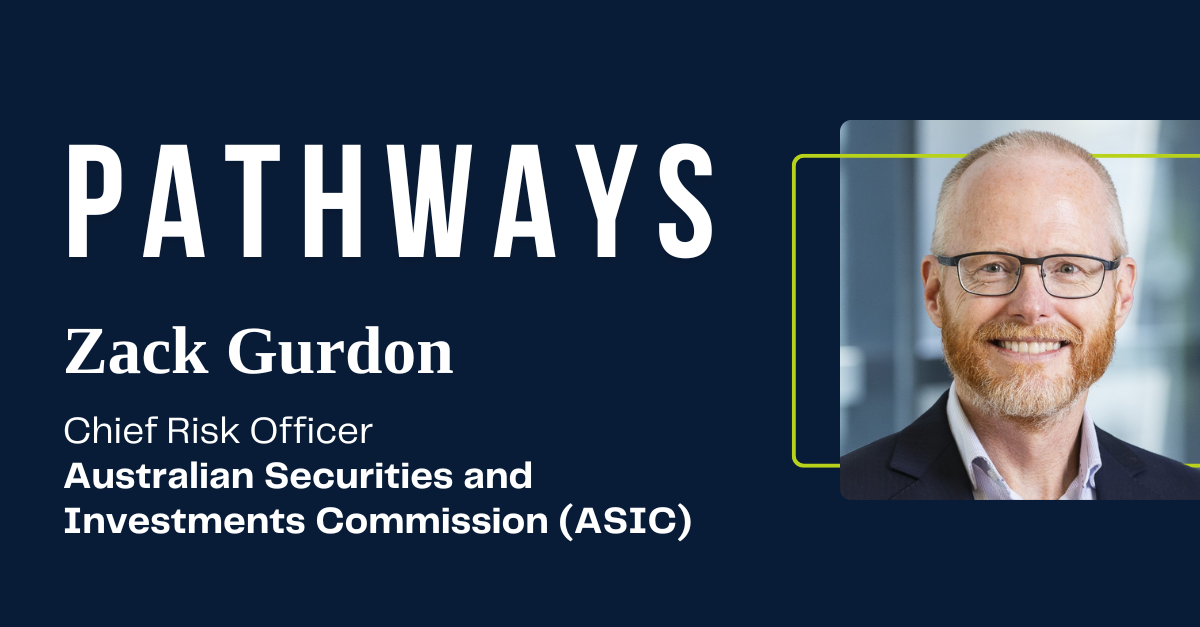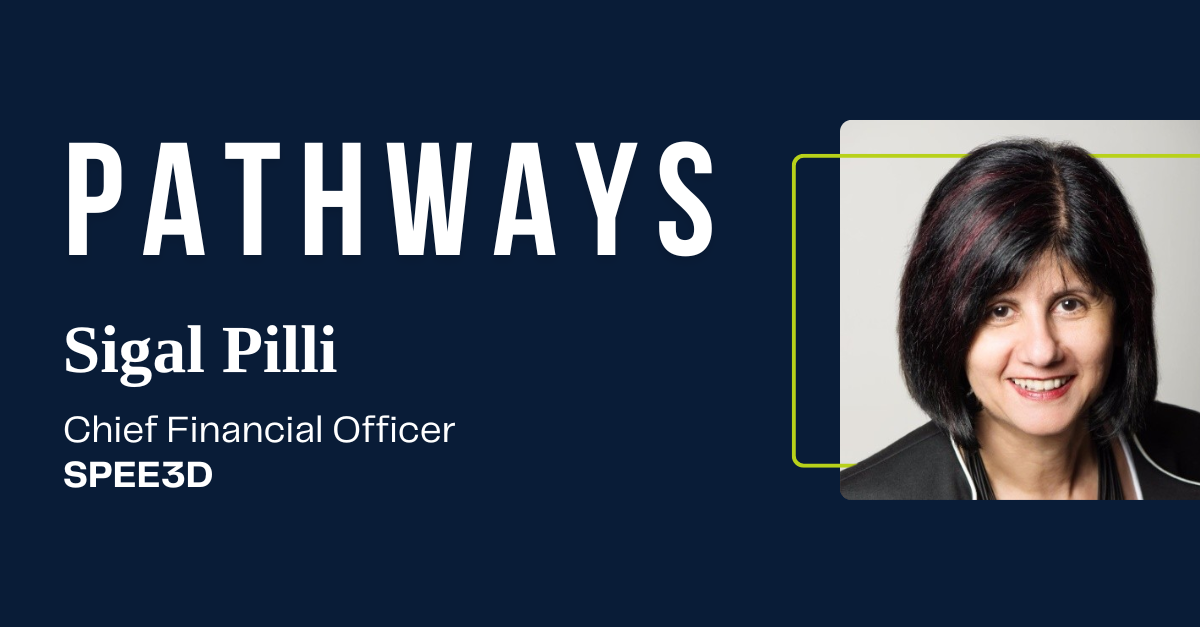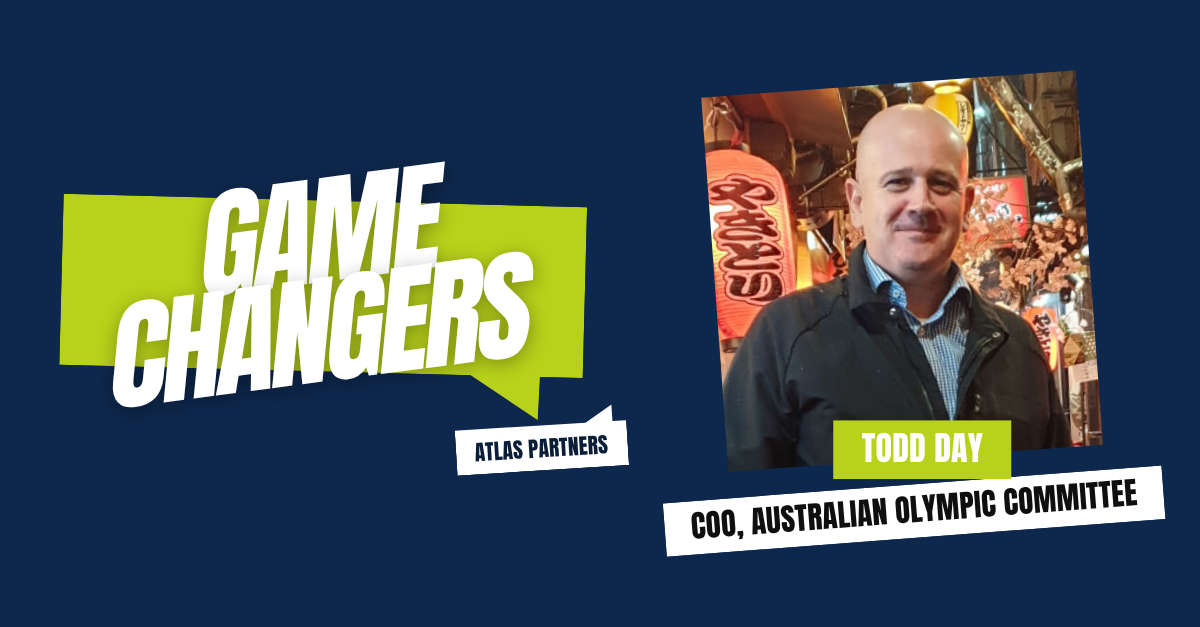Pathways — Trent Bond, Sports Entertainment Network (SEN)
It was a series of fortunate events, paired with a career of dedication and hard work — that led to Trent Bond stepping into the role of Chief Financial Officer for Sports Entertainment Network (SEN). Once a young boy who dreamed of a playing AFL, and now a self confessed Arsenal fanatic — the finance leader has found his place in the sports world, doing what he does best, building high performing teams with purpose.
Liam Killen, Director of Atlas Partners, chatted to Trent about the early days of his career, sliding door moments, and what he’d say to the finance leaders of tomorrow.
Liam: My guest today is Trent Bond, CFO of SEN Sports Entertainment Network. Trent, thanks so much for joining us.
Trent: Thanks for having me, Liam. I’m looking forward to it.
Liam: Trent, could you start by telling us about your career journey and how you became the CFO of SEN?
Trent: Sure, no worries. My career path might be a bit unique. Since I was five, I had two dreams: to either play AFL or become a businessman. Obviously, I didn’t make it to the AFL, but I pursued the business side of things. In Year Twelve, I landed a cadetship with KPMG, knowing that would be my path after university while still trying my hand at footy. When footy didn’t work out, I was fortunate to go straight to KPMG after high school.
I did a cadetship there, which involved two years of full-time work and part-time uni, followed by 18 months of full-time uni and part-time work. After finishing my degree, I went straight back to KPMG, where I stayed for six or seven years, until I was about 25 or 26. Then, like many accountants, I moved to London for 12 months. That period was probably the most important part of my career—it exposed me to a whole different world, took me out of my comfort zone, and helped me grow up and mature.
When I returned home, I got a great job as a Finance Manager with Programmed, an ASX-listed company that was later bought out by Japanese investors. That experience taught me a lot, especially during the buyout stage, about governance and compliance, which I hadn’t dealt with before. After that, I moved on to RSEA Safety as the Head of Finance. It was an incredible time to be there—the company grew from $170 million in revenue to $300 million during my tenure, and expanded from 54 stores to 100. While I can’t take credit for all that growth, it was amazing to be part of such rapid expansion, especially through the ups and downs of COVID.
Now, I’m fortunate enough to have what I consider a dream job as the CFO of SEN. I’ve been here for four or five months, and though it feels like longer, I’m still finding my feet and seeing how things play out.
Liam: Has there been a “sliding doors” moment in your career?
Trent: There are probably two. The first was when I returned from London and was working at Programmed. I thought I was working hard but realised I wasn’t pushing myself as much as I should have been. A great manager I had at the time took me aside and told me I had all the talent in the world, but I needed to apply it better. That conversation set me on the path to where I am today and shaped how I want to be as a manager—kind, empathetic, and focused on bringing out the best in others.
The second moment was at SEN. I was considering a role as GM of Finance, and a week after I accepted, the CFO resigned. That situation allowed me to step into the CFO role, which I now see as a lucky break and a significant sliding doors moment. It was one of those right-place-right-time situations that led to this dream role.
Liam: Tell us about SEN. On the surface, people know the radio networks, but tell us about the structure of the organisation as a whole.
Trent: It’s surprising to many, including myself, how broad our business is. The radio network is the largest part of our business, with stations in every state in Australia. While it’s most well-known in Victoria, where it’s been around the longest, we’re expanding elsewhere too. But ultimately, we exist to make a sports fan’s day—that’s our “why,” and it guides every decision we make.
We also own six sports teams, including the Perth Wildcats in the NBL, two WNBL teams (Perth Lynx and Bendigo Spirit), a Super Netball team (Melbourne Mavericks), and two basketball teams in New Zealand. It’s a unique and interesting model to be part of. We have a TV production business involved in covering AFLW, motorsport, golf, and other tier-two sports. It’s a really solid business.
Additionally, we have an events and trips business, well-known for the Super Bowl trip, but it’s also a leader in incentive travel. We manage sports and entertainment talent, particularly strong in the AFLW space, and have some well-known names like Shaynna Blaze and Scotty Cam. Finally, we have a publishing arm, producing the AFL Record and other newspapers. So, it’s a comprehensive sports and entertainment group, with the radio station being just one aspect of what we do.
Liam: There’s always a lot written about SEN, especially over the past twelve months. Where does the business find itself now?
Trent: That was an interesting point of discussion when I was considering the role. My take is that things are never as good or as bad as they seem. While there were challenges over the past year, I think the situation was over-exaggerated. What I can say now is that we’re in a very different place than we were then.
We recently sold a stake in the Perth Wildcats, valuing the business at $40 million, which is exciting and shows the value we bring to our shareholders. We bought the business three years ago for $8 million, so that’s a significant return. We’ve also halved our debt, which was a concern in the past year, and our share price has moved from seventeen cents to thirty cents, largely due to positive momentum and good news that might not have been public before but was happening behind the scenes. Our most recent radio survey results were record-breaking—in Melbourne, it was the best result in 20 years, and Sydney and Brisbane also had record results.
So, while things are looking up, there’s still work to be done. But the building blocks are in place, and we’re in a good position to take on whatever comes next.
Liam: Where do you draw your inspiration from?
Trent: My foundation, and the reason I do what I do, is my wife and daughter. About six years ago, a mentor introduced me to Simon Sinek’s book, “Start with Why,” and it fundamentally changed how I approach work and life. My wife and daughter are my “why”—they’re the reason I wake up in the morning, the reason I push myself, and they help me get through tough times at work.
From a professional perspective, I’ve also connected with SEN’s “why”—we exist to make a sports fan’s day. This greater purpose helps me grow in my career, manage and build teams, and ensure we deliver value to our listeners and customers.
Liam: How important has your network been to your career? Do you have any mentors?
Trent: Networking is essential, especially in a small city like Melbourne where everyone knows everyone. But what’s even more important are mentors. I’ve been incredibly lucky to have great mentors at RSEA and Programmed. At Programmed, I had someone who genuinely cared about me and wanted the best for me, which made all the difference. At RSEA, I worked with the best CFO I’ve ever known and an incredibly intelligent, kind, and generous CEO. They’ve been instrumental in my career by showing me what great leadership looks like and supporting my success.
For anyone at the middle management stage, I’d say finding a mentor is crucial. Whether it’s your direct boss or someone external, having someone in your corner who has your back and can guide you through the challenges of finance is invaluable.
Liam: What’s one piece of advice you’d give to the CFOs of tomorrow?
Trent: Two things. First, people. You’re only as good as the people around you. Nothing I’ve achieved would have been possible without great mentors and a strong team. You could be the smartest person in the world, but if you don’t surround yourself with the right people, you won’t succeed. A CFO needs to be emotionally intelligent, understand their strengths and weaknesses, and build a team that complements them.
Second, the role of a CFO is evolving. It’s less about technical knowledge and more about being a business partner to the CEO and bringing the wider business on the journey with you. CFOs touch every part of an organisation, so it’s crucial to focus on the strategic goals and how you can help the business achieve them.
Liam: Outstanding advice, Trent. Thank you so much for joining us today.
Trent: Thank you, Liam. It’s been a pleasure.





